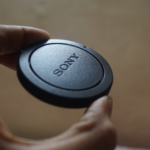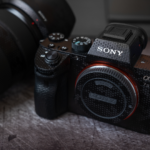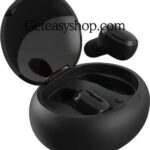1. Sony Mirrorless Cameras Explained

1.1. What are mirrorless cameras?
Photography as it were has witnessed the emergence of new kids, per say mirrorless cameras. These cameras are not as bulky and heavy as their DSLR cousins because they are mirrorless, meaning that there is no reflex or mirror mechanism.
It uses an electronic part finder as opposed to the old-style optic, displaying you your photo instantly. This is literally like a mini TV screen on your camera!
1.2. Reasons why Sony mirrorless cameras suck
Sony brought the heat with their mirrorless cameras and I must say thank you. These are not just smaller and lighter, they also boast some high-end features.
With this battery efficient lens, you receive fast-focusing accuracy and high image quality with the added ability to shoot silently (perfect for those candid shots!). In addition, Sony has amazing color science which will create even redder shades with these settings in effect.
Readmore:Best car under 10 lakhs
2. Sony Mirrorless Cameras Under 50000
2.1. Sony Alpha A6000
The Sony Alpha A6000 is your buddy that always has good advice. It’s not a recent newcomer; still, photographers love it. You have a fantastic 24.3MP APS-C sensor that is pretty much incredibly close to what pricier models say they can do with the same size chip,
The A6000 is also a fast. The autofocus is super quick, perfect for whipping out when you want to shoot those blink-and-you’ll-miss-it moments. Whether you are shooting your child’s soccer game or trying to grab a photo of the hummingbirds buzzing around, this camera has plenty in its favor.
“I used the a6000 at one of my friends’ weddings. It even nailed a few beautiful, sharp shots during the reception in very low light. My guests said I am a pro!
2.2. Sony Alpha A5100
While the A6000 is your trusty buddy, though, the A5100 plays things fast and loose — it’s something of a fun-sized sibling. It’s smaller still, so it can slide into your coat pocket or purse.
But the A5100 is still home to a 24.3MP APS-C sensor, despite its size. Having a DSLR quality camera that can fit in the palm of your hand! There’s also nice touch — sorry, I had to do it once: the touchscreen for easy focusing or selfie shooting.
3. Key Features to Consider
3.1. Sensor size and resolution
Size does matter for sensors! These are not full-frame image sensors, like the ones found in professional digital SLRs and other high-end cameras from Sony, but they’re bigger than what you’ll find inside most point-and-shoot models. Basically, this translates to improved image quality, especially in low-light.
The 24.3MP resolution is more than sufficient for most applications as well; even a demanding commercial client would be lucky to out-resolve the X-E2 output and might get master files at reduced sharpness settings in order not to lose any detail with the combination of sensor, filter stack and lens used being so good together.
Sony wYou could easily crank these photos up to blow-up size and display them in your house, or crop a bit tighter without losing detail.
3.2. AF System & Performance
Sony AF system — quick & dead accurate; like a cheetah In particular, the A6000 is known for fast focusing. This has 179 phase-detection points which span almost the entire frame. What that means in plain English is that your camera can quickly lock on to subjects even when not in the center of the frame.
Although not as fast or capable, the A5100 still camera is one of our favourite autofocusing mirrorless cameras. It very easily can cope with a typical shooting day. Next:Best microphone for youtube
4. Lens Options and Compatibility
4.1. E-mount lens system
Most mirrorless Sony cameras are great, not least because of their E-mount lens system. Envision it pretty much like a vast lenses buffet! There are wide-angle lenses for landscape, telephoto lenses for wildlife and much more.
And the good news is they both use this mount, so you’re not stuck with only kit lenses.
4.2. Best first lenses for novice photographers
You do not have to spend a lot on lenses when you are just starting out. With Sony, you get a couple of good budget-friendly choices:
The 16-50mm kit lens is a good general-purpose starter.
50mm f/1.8 <- Even this gem will cost you tons less and is one of the best portrait lenses on any DSLR full frame camera *
- 20mm f/2.8 pancake (wide angle, compact and relatively cheap for those interested in wide-angle shots)
Just remember, it isn’t always about having the most expensive stuff. Have fun using what you already have!
5. Usage scenarios and practical applications

5.1. Street photography
They are very small and you can take pictures without drawing too much attention. Despite that, the speedy autofocus works exactly where it should do you not miss out on those fleeting moments when doing street photography.
My first experience of using the A6000 for street photography was on a market day in my town. This was a revolutionary( for me) and allowed my to shoot candids without disturbing anyone.
Readmore:Best camera under 50000
5.2. Nature and Landscape Photography
These cameras are tiny but mighty, and you can use these full-frame beasts to shoot landscapes or nature photography. The APS-C sensors produce lots of detail, ideal for the expansive vista image.
If you are trying to capture wildlife then A6000’s faster Af system might have a small upper hand in nature photography. However, with the correct lens both cameras can take beautiful nature photos.
I once brought my A5100 with me on a journey, climbing in the mountains and was astonished how even such a little camera got out all landscape great. That just proves, great things do come in small packages!


